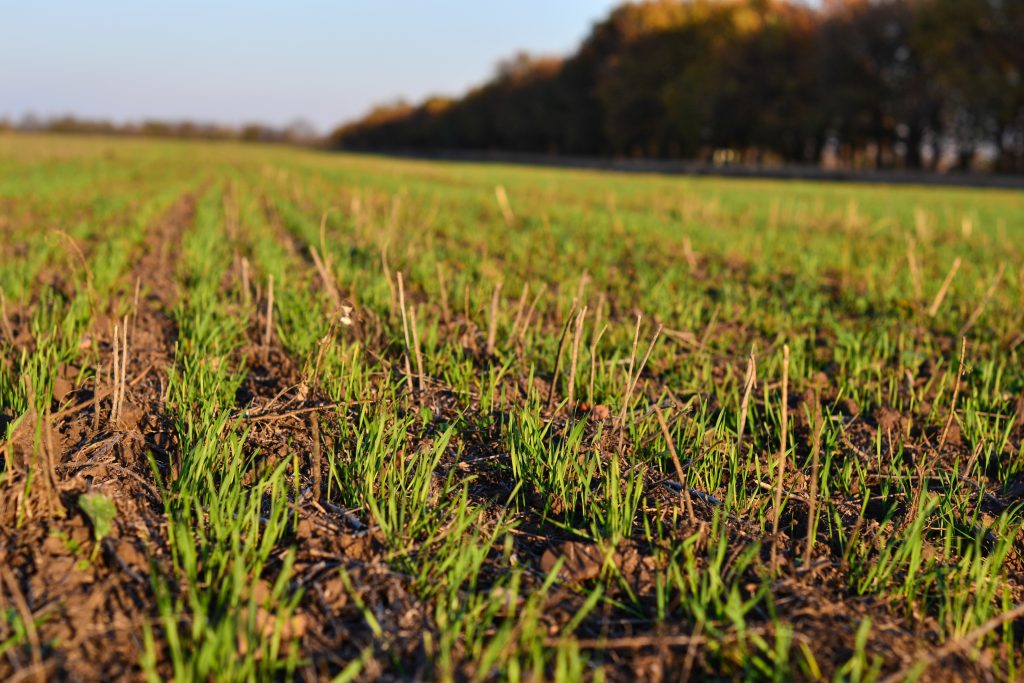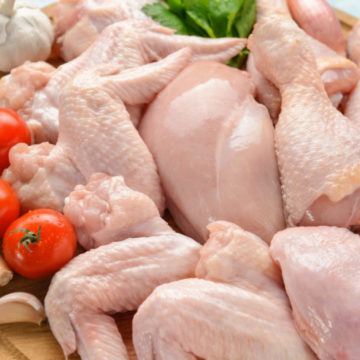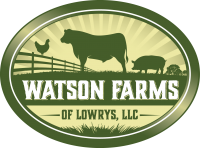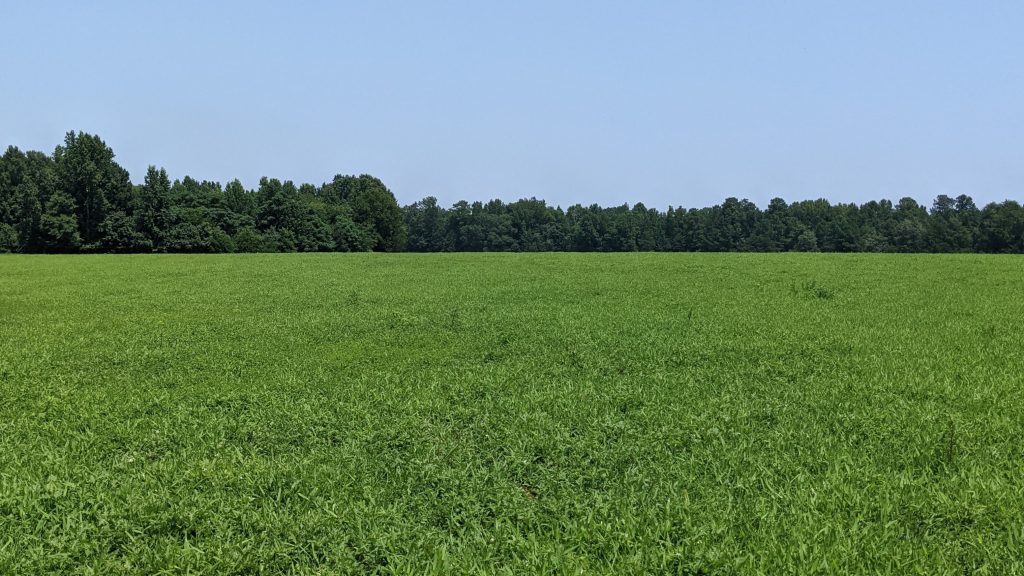We would like to take a moment to wish everyone a Happy Memorial Day, and we hope you can take some time to remember those who have sacrificed to keep us free.
Here’s the weekly roundup from Watson Farms and your direct connection to your farmer. Enjoy the latest edition of Pasture Posts!
When visiting the grocery store do you ever feel frustrated by all the different food certifications and label claims?
To add to the confusion, the term “Regenerative” is starting to pop everywhere and is quickly becoming the newest buzzword.
A lot of confusion exists even among industry professionals in addition to consumers about what “Regenerative” actually looks like on the farm level.
How each unique farm implements regenerative practices can and should look very different. But, bottom line: If soil health is improving then everything else will follow including improved food quality, a cleaner environment and a healthier society.
To help you grasp what regenerative farming looks like at Watson Farms, I’ve compiled a fun list of examples of how we’ve replaced conventional tools and practices with a regenerative approach:
Earthworms Replace Fertilizers
Because we only use no-till at Watson Farms, our soils are teeming with an army of millions of earthworms that come up to the surface of the soil to recycle litter and dead plant materials to feed the life below the soil.
These same worms can produce up to 160,000 lb of castings per acre each year. Castings are extremely rich in nitrogen, phosphorus, and potassium. Who needs harmful synthetic fertilizers when you have millions of earthworms working below the soil!
Cows Replace Combines & Sequester Carbon
Each year over 14 million cattle in the US are raised in feedlots and fed grain that must be mechanically harvested with expensive equipment and then hauled to the feedlot. But who needs a $500,000 combine to harvest and haul grain to the cattle feedlot when you consider the fact that cows are designed with 4 legs and a rumen and are perfectly equipped to self-harvest their own food?
The BIG benefit is that when cows are grazed properly on grasslands they work in symbiosis to regenerate the soil and sequester a net positive amount of carbon back into the soil.
Legumes Replace Nitrogen
Each year an estimated 12 million tons of nitrogen is applied to crops at a cost 15 billion dollars for U.S. farmers. Not only does this toxic nitrogen degrade the soil, worse yet 30-50% of this unstable nitrogen leaches into our waterways.
At Watson Farms we are seeing a variety of volunteer clover, vetch and other legumes appear in our pastures since we began a more intensive effort of mob grazing a few years ago. These amazing plants capture free nitrogen from the air and release it safely in the soil where it is stable. Why apply toxic nitrogen to the land when the atmosphere above every acre of land is made of 78% nitrogen?

Cows Replace Manure Spreaders
A single cow will produce as much as 82 pounds of manure daily. This manure represents precious nutrients that should be returned to the land it was harvested from. When cattle are confined to feedlots this manure represents a big environmental liability.
But because we raise our cattle on pasture, our cows naturally return their manure right back where it belongs resulting in net positive nutrient addition to our soils. Furthermore, during hot weather when we can use portable shade structures (which are on our to-do list) we can strategically distribute the manure in the most needed areas of a pasture and we will no longer be limited to just the areas where trees are.
No-till, perennials, and volunteer species instead of tillage
For decades, we have seen the benefits of using winter annual grasses from the fall and winter into the spring of each year. These grasses are higher in sugars and energy which helps the cattle fatten better and ultimately provides a proper finish for our cattle. When we use no-till practices to plant these seed mixtures (not a single species monocrop) then we eliminate all the problems that come with tillage (soil erosion, moisture loss, reduced organic matter, etc.)

So with the cool season accounted for, you might wonder what we do for the warm season. Glad you asked! Around late May to June of each year, we see the dormant crabgrass seed bank start to germinate. This often-disparaged grass species is a beloved energy source for our cattle year after year. It is a native grass so it usually does really well here, and best of all, it’s free! With the right conditions – one of which being hundreds of cow hooves creating just the right amount of disturbance – it will come like “hair on a dog” as my dad puts it.

Now there are also various times during the year that we have some gaps in our forage chain. We reserve some fields of fescue (a cool-season perennial that can also stay green through the summer) to bridge any gap we may encounter. These fields serve as an insurance of sorts that can buffer against lean times.
Chickens & Cows Replaces Pesticides and Herbicides
At Watson Farms the combination of our grazing management and species diversity eliminates the need for pesticides and herbicides. The diversity of wild birds, bugs, insects and grasses, clovers, and forbs all work in symbiosis to keep our pasture ecosystem in a harmonious balance.
While conventional farms spray for “weeds and pests”, our cattle have no problem munching on thistles (they are high in phosphorus) and our 4,000 chickens consider all the bugs and insects a yummy treat! The wild birds also flock to the cattle mob where they can efficiently feast on the flies that always appear in cattle herds. If our cattle were spread out and continuously grazed the wild birds would not be nearly as prevalent.
The list above is a fun sampling of what regenerative practices look like at Watson Farms.
At the end of the day we are simply mimicking nature in order to raise food while regenerating our soils and healing the earth.
Raising food in this way is very fulfilling work but without your support it would not be possible.
Thank you for your partnership, and I hope you learned something today.
Product Spotlight
One of the most popular bundles over the last couple years has been our Little Chicken Bundle. You get 3 packs of boneless/skinless breasts, 3 pack of leg quarters, and 3 whole broilers.
We’re planning to put about 425 chickens in the freezer this week so help us keep the flow of product going and save some money while you’re at it!
Better yet, we also offer a UPS-eligible version. So if you or someone you know lives outside our Home Delivery areas then we can probably serve them with our UPS options. Be sure to tell them about us using our Referral Program so that you both can receive a $15 credit!
-
 Little Chicken Bundle$169.00
Little Chicken Bundle$169.00 -
 Little Chicken Bundle (UPS)$199.00
Little Chicken Bundle (UPS)$199.00
For some of our recommended products, check out our Featured Product Page. You might find something that you didn’t even know we had!
Produce Boxes Available Now!
Our partnership with Wild Hope Farm continues this year as they are working hard to provide you with superior organic produce that can be delivered to your door right along with anything else that we deliver on our van. (Not available for UPS Shipping at this time.) In order to provide you with the freshest produce possible, we have implemented the deadlines below.
Produce Box Order Deadlines:
CHARLESTON/COLUMBIA HOME DELIVERY – SUNDAYS at 9pm
GSP HOME DELIVERY AND FARM PICK UP – TUESDAYS at 9pm
LOCAL HOME DELIVERY- THURSDAYS at 9pm
Head over to the product page below to order now.
Help us spread the word!
It’s now easier than ever to Give $15 and Get $15 through our Referral Program. We don’t spend a lot of money of advertising, but rather we focus on producing products that people love and are willing to tell others about. So we depend on word of mouth to find new customers and ultimately to heal more land.
So in an effort to streamline this process we have made it easier to tell others (via email, Facebook, or Twitter) about Watson Farms. And it’s all automated on the backend, so you don’t have to rely on us to issue the store credits manually. Just head over to our Referrals Page and start sharing!
We re-use packaging!
We’ve seen a good response to our efforts in re-using packaging! Thanks and keep it up.
You can help us reduce our carbon footprint by returning your CLEAN egg cartons and meat boxes.
The main reason that we switched to plastic egg cartons a while back was because they are so much more durable than paper which could only be used once. They also protect the eggs much better!
So if you have some egg cartons or boxes to return, you can just place them on your porch on your home delivery day. Farm pickup customers can, of course, drop them off when you come to pick up your new order.
***We can only re-use OUR cartons or boxes. Please re-use or recycle other boxes or egg cartons elsewhere.***
We redact your personal information found on your meat boxes when we re-use them, but feel free to redact to redact it yourself without damaging the box if you would like.
Thanks for helping us re-use our packaging!
Order Deadlines and Store Hours
Charleston and Columbia Areas: 12 noon Mondays
UPS Orders: 12 noon Mondays
GSP: 12 noon on Wednesdays
Charlotte/Fort Mill/Rock Hill Areas: 12 noon Fridays
Farm Pickup: Please wait until you receive an email stating that your order is ready to be picked up (usually 1 business day from when you place your order). Farm pickup is done during store hours:
Monday, Tuesday, Thursday, Friday: 10am to 6pm
Saturday: 10am to 2pm
Closed Sunday and Wednesday
Did you know that we have a webpage that displays all the reviews we have received?
Check it out!
Check out this ⭐⭐⭐⭐⭐ review:
“This place is Brilliant! The best, most fresh pastured meats delivered to your door! We tried a small amount of the pork and beef a couple of weeks ago. It was outstanding! Today I received 1/4 of an entire pig! Yum! 30-40 pounds of mixed cuts and sausage, bacon, ribs and butts. Met the owner and Sam the new driver. Friendly, on time, you can’t go wrong here folks!”
We would greatly appreciate it if you would be kind enough to leave us a review. It helps first-time customers purchase with confidence.
Thanks again for being partners in this endeavor of local, pasture-raised proteins that has truly transformed our farm. We look forward to continuing this transition while serving you long into the future.
Sincerely,
The Watsons
Pasture Posts is written by Matt Watson.



